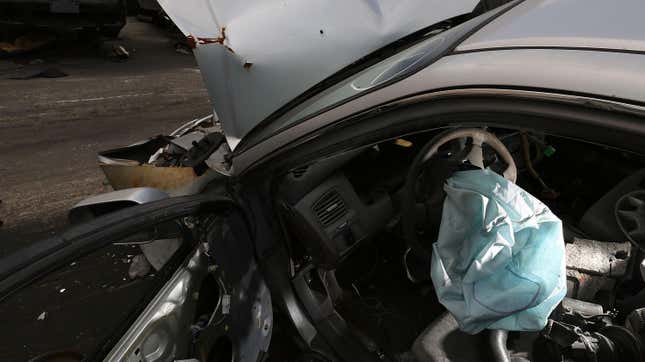
The death toll from the faulty Takata air bags continues to mount, with the fifth death caused by the airbags the National Highway Traffic Safety Administration announced Monday. Unfortunately, the deaths are likely to continue for sometime.
The recent crash of a 2010 Chrysler 300 is the third death this year in a Stellantis sedan and the 24th death in the U.S. since the scandal erupted back in 2014. Hundreds of people have been injured as well. The air bag can explode is such a way that even slow-speed crashes can “...kill or produce life-altering, gruesome injuries,” according to NHTSA. Millions of cars are still on the roads with these defective air bags, according to Consumer Reports:
Vehicles made by 19 different automakers (34 brands) have been recalled to replace frontal airbags on the driver’s side or passenger’s side, or both in what NHTSA has called “the largest and most complex safety recall in U.S. history.” The airbags, made by major parts supplier Takata, were installed in cars mostly from model years 2002 through 2015. Some of those airbags could deploy explosively, injuring and even killing car occupants.
A total of 67 million airbags have been recalled, and at the end of 2022, 11 million were still yet to be replaced.
Stelliantis issued a Do Not Drive warning on some 276,000 model year 2005-2010 Dodge Magnums, Chargers and Challengers, as well as Model Year 2005-2010 Chrysler 300s last month. NHTSA is urging vehicle owners to double check if their vehicle has one of the faulty air bags and to get it fixed right away. The longer owners wait, the more dangerous the air bags become. Age, as well as humidity and temperature, can affect the ammonium-nitrate-based propellant contained in the inflator housing, leading to a shrapnel-laced explosion, according to CR.
Use NHTSA’s Recalls Lookup Tool to check your VIN for any open safety recalls, including the urgent Takata recall.